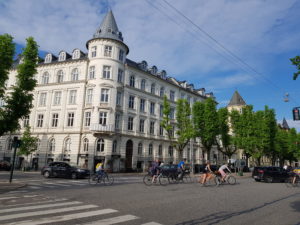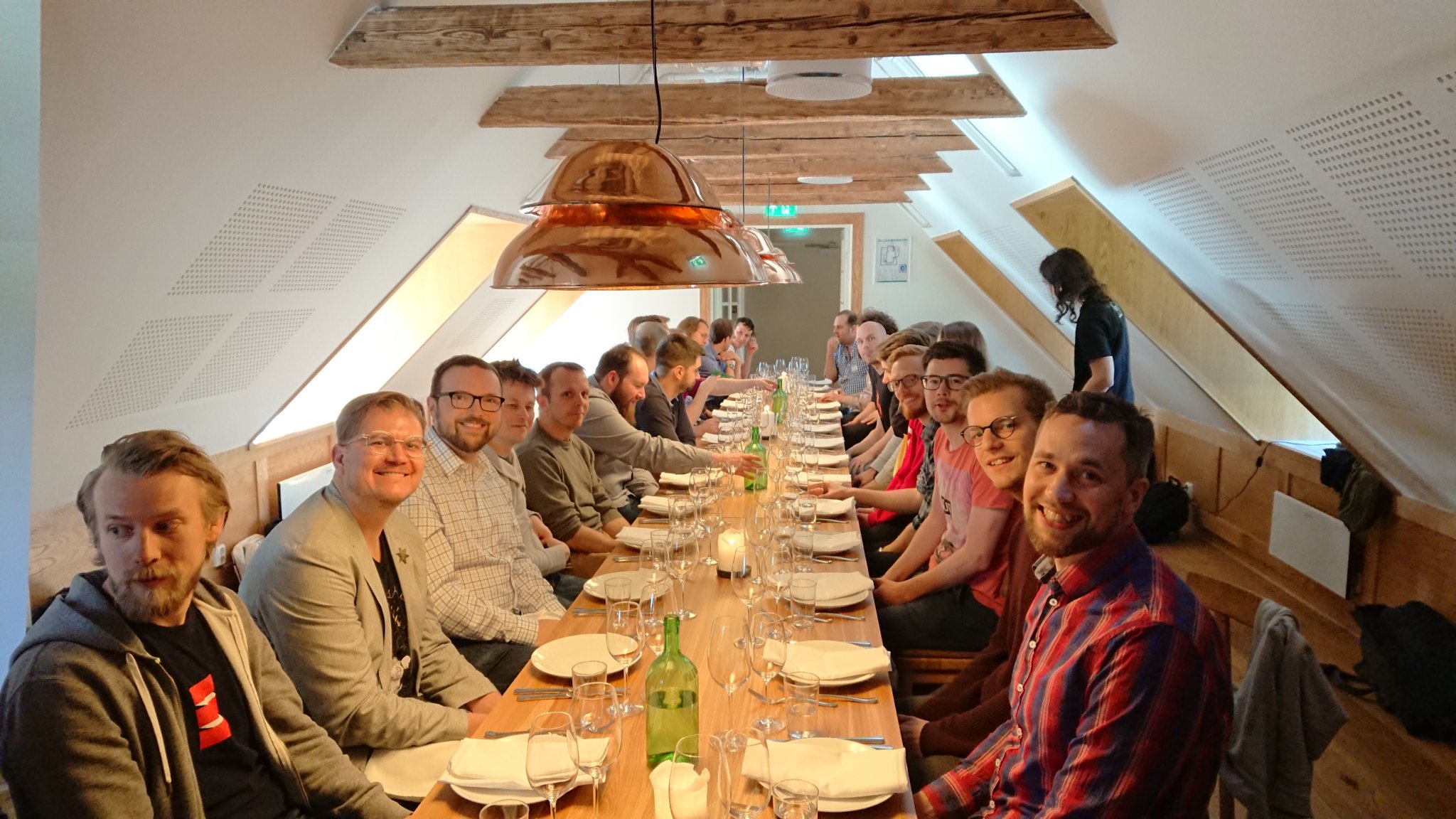
2018-05-15 08.18.08
I had the unique opportunity to attend µCPH 2018 in the wonderful city of Copenhagen this year.
The relatively small community conference was a great mix of high-level and hands-on talks.
Hosting a single track of talks did not jeopardised me to pick from a variety of presentation titles. Instead it felt like the order of talks was perfectly aligned to guide you from the eagle’s perspective (keynote on coupling by Michael Nygard) to Microservices and patterns of Domain Driven Design, down to the hands-on experiences of an actual move to a dockerized system of Financial Times, closing with some great remarks of a framework for breaking up the UI monolith (mosaic from Zalando).
One of my favorite presentations: _Microservices: Patterns and Antipatterns_ by Stefan Tilkov (slide deck, video). Many talks take the motivation for microservices either for granted or put scalablity, fault-tolerance and moving agile through independent release cycles upfront. In this talk however, Tilkov focuses on actual problems and how they have been solved in the past without the label micro service and how you shoot yourself in the foot by blindly applying conference-motivated architecture.
Another great talk by Dmitriy Kubyshkin explained how Zalando deals with a micro-service infrastructure and their front-end (slides, video). Many times micro-services talks are about back-end systems, and left the front-end out of discussion. At speedledger we also have the problem, that we somehow have to combine UI components with their back-end counterparts that are served through micro-services. Mosaic – the framework that Zalando developed has some great inspirations on that topic.
“Mosaic Micro Frontends in Review” by @d_kubyshkin from @ZalandoTech at #microcph:
* teams own backend APIs
* teams own fragments
* fragments use backend APIs
* layout service assembles fragments
* assembled content is streamed to the client pic.twitter.com/E2zMav9W4h— Susanne Kaiser (@suksr) May 15, 2018
Ben Stopford with his talk on Kafka Streams (video, slides) gave some great ideas how you can turn services inside out and use advanced Kafka features to distribute the state of your system to avoid letting services turning into a database with a REST interface.
“Start Simple and Evolve” advice from @benstopford from @confluentinc at #microcph for building event driven services pic.twitter.com/wlYiybgt7F
— Susanne Kaiser (@suksr) May 15, 2018
µCPH was a very well organised conference with a great schedule that gave plenty of time between the sessions to exchange with other attendants and to network.
The food at #microcph was amazing, 4 different food trucks and great ice cream pic.twitter.com/BJHaXQSKNO
— Mikkel Holck Madsen (@mikkelhm) 15 May 2018
I highly recommend to attend µCPH, if you have the chance to do so 🙂
– Tobi


Recent Comments